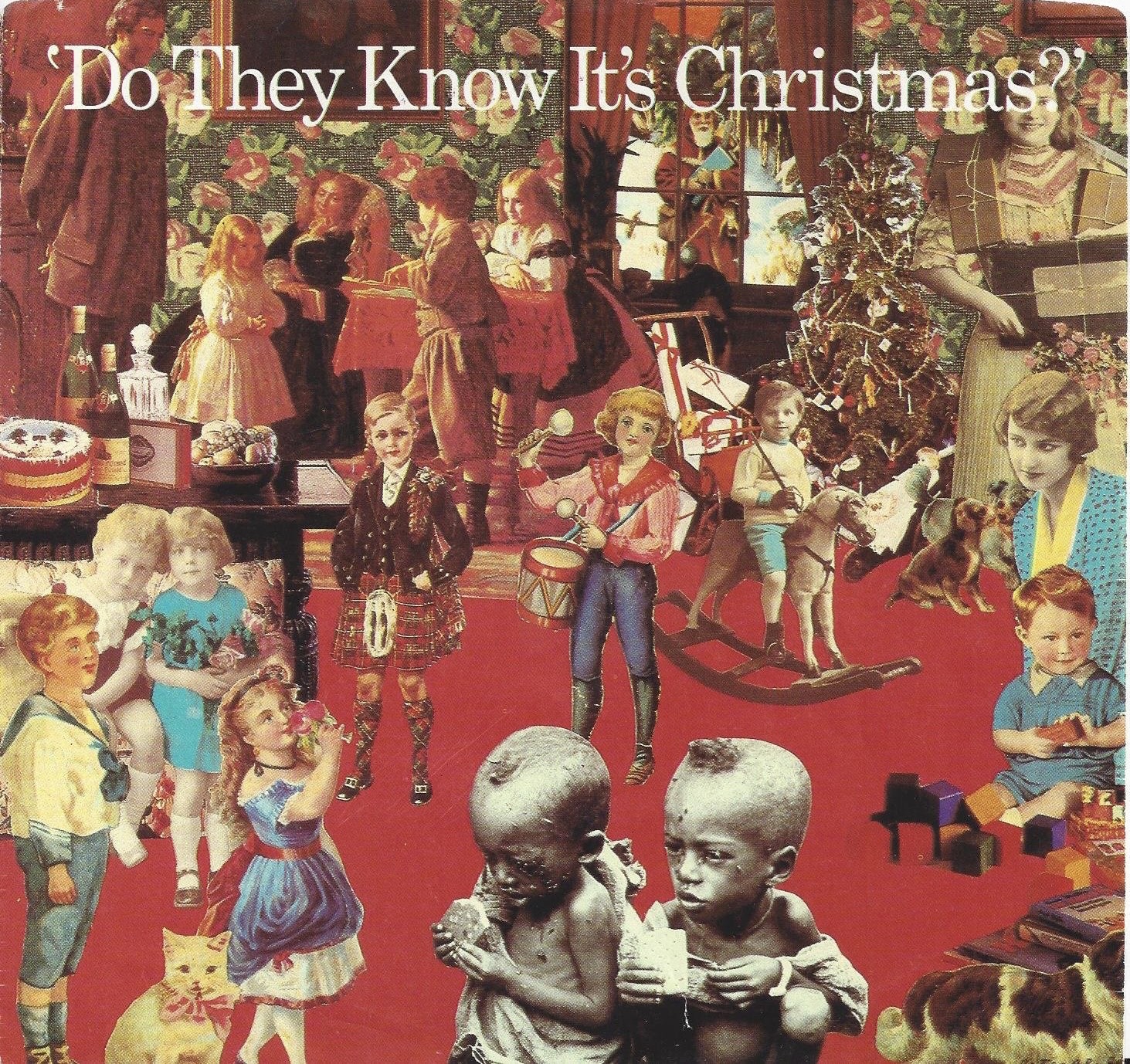I have as much affinity for the song “Do They Know It’s Christmas?” as the next Gen-Xer. I know I’m not alone in the nostalgic resonance of the echoing, opening chimes, which will forever harken back to the rush of the first view of the video, the slow-motion assembly of some of our favorite artists—Sting, Bono, George Michael, Boy George, Phil Collins, and more—all coming together under the name of Band Aid, just in this precious first moment, for a greater cause.
It was 1984. We were told we, the listener, had the power to help the starving people of Ethiopia. All we had to do was purchase “Do They Know It’s Christmas?” The single went straight to No. 1 in the U.K., where it stayed for five weeks.
Band Aid sparked 1985’s Live Aid, the most successful fundraising concerts ever (there were two, simultaneously, one at London’s Wembley Stadium and the other at Philadelphia’s JFK Stadium). The concerts (and the ubiquitous merchandising sales — we really did buy the T-shirt) raised around a couple of hundred million dollars for famine relief. And inspired the donation of hundreds of millions of dollars more from UN and governmental funds and other highly capitalized relief organizations. We were saving Ethiopians.
Or so we believed.
“Do They Know It’s Christmas?” co-songwriter and ultimately Live Aid producer Bob Geldof probably had good intentions when he put it all together. However, when he ceremoniously, and not a little pompously, handed over the first tens of millions of dollars to then-Ethiopian President Mengistu Haile Mariam, dramatically backslapping him for the cameras, the money was not used to feed people, but to purchase weapons. Ethiopia was in the middle of a civil war and Mengistu was brutally repressing and slaughtering his own people who wanted to secede and form Eritrea.
Back in the West, we had no idea this was going on. It was later discovered that Mengistu was purposely starving the rebels to maintain his reign of tyranny and terror. And that the “famine” was mostly Mengistu’s military planes napalming the fields of the rebels.
Food sent to Ethiopia was left to rot on the docks in the ports. That is, after Mengistu’s army had taken as much as they wanted for themselves.
Foreign, independent relief agencies in the country, like Medecins Sans Frontieres, warned Geldof what was happening but he stubbornly ignored the facts, famously (and tragically) saying that if he had to deal with the Devil to help these people he would.
And boy, did he ever do the first part.
At the time, there was little-to-no news coverage about this ginormous fuck up— which led to an honorary knighthood for the now “Sir” Bob Geldof, bestowed by Queen Elizabeth II in 1986 for, what we now know were decent intentions with a diabolical outcome. If you’re wondering if this could have been prevented, if Geldof could have done better, the answer is yes: he could have listened to those on the actual front lines trying to help the hundreds of thousands of starving and dying people.
SPIN broke this story in a powerful, investigative article in 1986, for which then editor-in-chief and SPIN founder Bob Guccione, Jr. received death threats for publishing the truth. “People didn’t want to believe that Live Aid inadvertently caused more suffering and death than the mostly man-made famine and war,” Guccione says. “They wanted to keep the fairy tale that buying a record and donating while watching the world’s biggest rock stars perform was fixing a problem.”
Looking back at the beginning, at “Do They Know It’s Christmas?”, we see some glaring missteps in the song’s conception. Bono’s famous line “Well, tonight thank God it’s them instead of you” has since been changed to “Well, tonight we’re reaching out and touching you”—for all the obvious and necessary reasons. “There won’t be snow in Africa” because there simply isn’t snow in Africa, not because of a Christmas-related climate disaster. But one of the biggest issues of them all is ignoring the third of Ethiopians who are Muslim and who surely “know” it’s Christmas, but have chosen not to celebrate. Minor details when considering Mengistu’s goal for mass genocide, and Geldof’s blundering efforts, but still worth mentioning.
So…what happens now? The original song is still receiving plenty of annual radio play, and, as far as we know, Geldof’s honorary knighthood status hasn’t been revoked. The song has been remade twice—in 2004 and 2014—with further rounds of charity efforts. But the real issue is the way this song is perceived in history, the unintended but horrific legacy it launched, and the resistance to accepting the tragedy it ultimately contributed to.
What is it about ugly truth that angers some—even more than protests against Geldof himself? In a culture of cause and awareness, do you get to take a break in the name of a favorite holiday sing-along song? Is caring about people and history…seasonal?
Nearly four decades ago, some of the top musicians came together in the name of famine relief, genuinely believing they could do some good. You can hear the magic of hope in their voices, their spirit is real and pure. But how can we “let in light” and “banish shade” if we turn our back on the truth?




